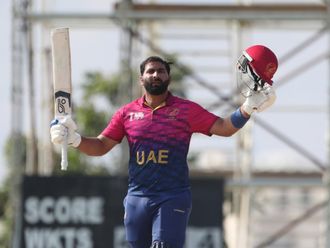Melbourne: Australian rugby will look to strengthen its anti-doping regime and boost investment in testing in the wake of an explosive government report on the use of banned performance-enhancing drugs in sports Down Under.
Australian Rugby Union (ARU) chief Bill Pulver said he was relieved his code was not in the firing line of investigations that have rocked rugby league and Australian Rules football but said it could ill afford to be complacent.
“Fundamentally we have put in place a very solid programme but I have no doubt we will need further investment and further rigour in our testing procedures going forward,” Pulver said.
“This year we will have greater than 220 tests done across our Wallabies population and our five Super franchises and two sevens teams, which I think is pretty comprehensive. But there will, I suspect, be broader programmes we will want to put in place.”
The Australian Sports Anti-Doping Authority (Asada) is conducting interviews with about 150 players, coaches and support staff in the top-flight National Rugby League and the indigenous Australian Football League.
The report, the result of a year-long probe by Australia’s top criminal intelligence unit, said it had found ‘widespread’ use of banned drugs among professional and amateur athletes, with teams and players implicated across multiple codes.
World Anti-Doping Agency chief John Fahey said last week that Australia’s sports had not ploughed enough resources into their anti-doping regimes, and said they needed to spend more money on a greater quantity and quality of tests.
Australia’s five teams in the southern hemisphere’s Super Rugby competition each have around 35 players on their rosters, meaning most would receive just one drug test in a season if averaged out under the ARU’s 220 tests.
Pulver, who succeeded John O’Neill as chief executive and started the new role last week, said the ARU’s anti-doping programme had been endorsed by Asada.
“Obviously I was rather relieved to know that the initial investigations had not focused on rugby and that we were not initially in that spotlight,” he said. “I was relieved in my first meeting down in Canberra when the chief executive [Aurora Andruska] of Asada actually looked at me and said, ‘Bill, your programme is actually in pretty good shape’.
“She was actually quite complimentary of the steps we have taken but we really are trying to avoid to be complacent about that and obviously need to be even more rigorous going forward.”
Pulver revealed last week that the ARU’s integrity office had prosecuted four amateur players for drug offences, banning three of them for two years and a fourth, who had attempted to distribute performance-enhancing drugs, for four years.
There have been few doping cases involving players at the pinnacle of Australian rugby, however. Dual international Wendell Sailor was banned for testing positive for cocaine in 2006 when playing for Super Rugby side, New South Wales Waratahs, while former Wallaby Ben Tune also tested positive to a banned substance in 2001 but escaped sanction from the ARU, which said he had taken it under the advice of medical staff.
Waratahs captain Dave Dennis said anti-doping officials were never far away from his team, but that there was only so much testing that could be done with finite resources.
“There’s a few issues involved,” the Wallabies flanker said. “Money’s an issue. You could test every player every weekend if you want but it’s not manageable.”








